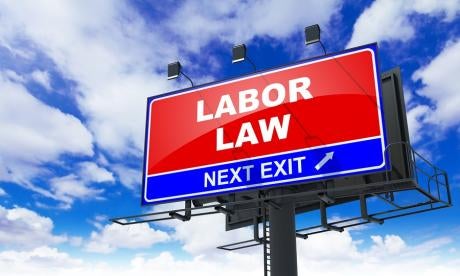We invite you to view Employment Law This Week - a weekly rundown of the latest news in the field. We look at the latest trends, important court decisions, and new developments that could impact your work.
This week’s stories include ...
(1) Workplace Harassment Review in Federal Courts
Our top story: The federal bench responds to the #MeToo movement. The newly formed Federal Judiciary Workplace Conduct Working Group will review workplace harassment policies in the federal judiciary. This initiative grew from a pledge U.S. Supreme Court Chief Justice John Roberts made following the resignation of Ninth Circuit judge Alex Kozinski last year amidst accusations of inappropriate sexual behavior. The group will survey common workplace policies, talk to jurists and other employees in the judiciary, and compile a report with recommendations. Nathaniel Glasser has more:
“This highlights the fact that no industry or workplace is immune from concerns of sexual harassment or workplace misconduct. While the public discourse has focused on Hollywood and the media and politics, we've already seen executives dismissed from companies in the financial industry, healthcare, and technology, just to name a few. This highlights the importance of employers to review their current policies, train their employees and their managers, and proactively respond to complaints of workplace misconduct.”
(2) DOL Reissues 17 Opinion Letters
The Department of Labor (DOL) has reissued 17 opinion letters signed during the final month of the George W. Bush administration. The letters address a variety of FLSA topics, and were withdrawn by the Obama DOL in 2009 “for further consideration.” Three other opinion letters will remain withdrawn. An opinion letter is an official written DOL opinion of how the law applies to a specific set of facts. Issuance of opinion letters was a common practice at the DOL for 70 years before the Obama administration discontinued them in 2010, and replaced them with more general Administrator’s Interpretations. Last year, under the new administration, the Department announced a return to Opinion Letters.
(3) John Ring Nominated for NLRB
Trump picks John Ring to fill the National Labor Relations Board (“NLRB” or “Board”) vacancy. The president has announced Ring, a management-side labor lawyer, as his choice to fill out the NLRB. A vacancy was created when Board Chairman Philip Miscimarra completed his term in December 2017. The Board is currently split 2-2 and will return to a 3-2 Republican majority if Ring is confirmed by the Senate. A date has not yet been set for his confirmation hearings.
For more, click here
(4) ICE Raids 7-Eleven Stores
Immigration and Customs Enforcement (ICE) raids 7-Eleven stores across the country. On the same day ICE issued a press release announcing its priorities for enforcement against undocumented individuals, immigration agents raided 98 7-Eleven stores across the country. The agents arrested 21 employees during these raids, in what the Trump administration described as a "show of force" to demonstrate its zero tolerance policy for undocumented workers.
(5) Tip of the Week
People analytics have become a valuable tool for HR professionals, but utilizing them comes with some risks. Rick Holt, a Director at Resolution Economics, is here to tell us what to watch out for:
“First, there's the issue of transparency. In an effort to protect their intellectual property, a number of the vendors and consultants in this area will only share an overview of their algorithms and associated data elements. While that's understandable, it creates a challenge for the employer. Often, when looking to figure out what successful is, these tools look to the incumbents in the workforce at the employer. This kind of circular logic can lead to something called 'similar to me' bias, which further leads to potentially inefficient decisions, and might even lead to legal risk. The third and final risk factor I'd like to discuss is disparate impact or disparate treatment. There's been a lot of discussion about how these automated decision-making tools may actually lower those risks, because they remove subjectivity from the decision-making process. And while there is certainly some logic to that, there is a flip side to it, as well. These tools, these algorithms, may actually, buried within, have factors or aspects of the logic that actually increase outcome differences, with respect to things like race, gender, and age.”





 i
i


